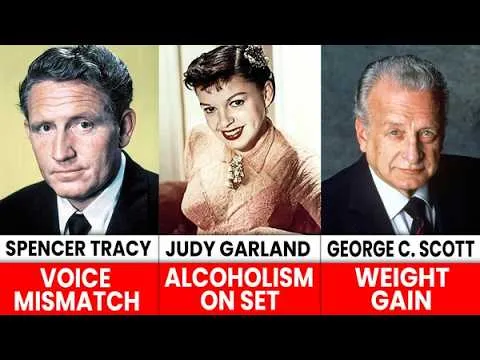Getting fired is challenging in any profession, but imagine the shock of being let go in the middle of a movie shoot after you’ve memorized your lines and perfected your character. This dramatic reality has faced several big-name actors, highlighting that even the most untouchable stars are not immune to dismissal. Join us as we explore some of the most shocking and unforgettable stories of actors who were fired mid-filming, starting with Lita Gray’s unexpected exit from Charlie Chaplin’s *The Gold Rush* in the 1920s.
In 1925, Chaplin was at the peak of his fame and directed *The Gold Rush*, casting Lita Gray, a young actress who had appeared in his earlier works. At just 15 years old, Gray and Chaplin began a romantic relationship. However, complications arose when she became pregnant. To avoid potential scandal, Chaplin married her in a secret ceremony in Mexico, while publicly claiming that Gray was leaving the film to focus on being a devoted wife. As her pregnancy became more apparent, Chaplin decided to fire her, replacing her with Georgia Hale. This transition marked a dramatic shift from a Hollywood romance to a forced departure under the pressure of scandal.
Vivien Leigh’s struggle with bipolar disorder also led to a significant career setback. After winning an Academy Award for her iconic role as Scarlett O’Hara in *Gone With the Wind*, Leigh’s mental health began to decline. During the filming of *Elephant Walk* in Sri Lanka, her condition worsened, resulting in erratic behavior that caught the attention of the production team. Despite attempts to stabilize her with the help of her husband, Laurence Olivier, and others, her unpredictable episodes became too disruptive, leading to her dismissal and replacement by Elizabeth Taylor. This unfortunate end to her involvement in the film underscored the challenges of managing mental health in the high-pressure environment of Hollywood.
Joan Crawford’s rivalry with Bette Davis led to her unexpected exit from the film *Hush… Hush, Sweet Charlotte* in 1964. Tensions between the two actresses had been high from the beginning, with Davis openly criticizing Crawford’s performance. The stress of their feud took a toll on Crawford’s health, resulting in a hospitalization. While she was away, production suffered significant financial losses, prompting the studio to seek a replacement. Ultimately, Davis pushed for Olivia de Havilland to take Crawford’s place, and Crawford learned of her firing through a gossip columnist while still recovering in the hospital. This incident highlighted the cutthroat nature of Hollywood and the impact of personal conflicts on professional opportunities.
Marilyn Monroe’s struggles culminated in her firing from *Something’s Got to Give* in the early 1960s. Once one of Hollywood’s biggest stars, Monroe faced personal challenges, including addiction and depression, which affected her performance on set. Her frequent absences, combined with erratic behavior and medication issues, led to frustration among the crew. After a controversial appearance at President John F. Kennedy’s birthday celebration, Monroe was fired and faced a substantial lawsuit from the studio. Although there was a brief hope for her return after her co-star refused to work with a replacement, tragedy struck when she was found dead from a drug overdose at just 36 years old, a heartbreaking end to her tumultuous life.
Lastly, even acting legend Laurence Olivier faced rejection early in his career. In the 1930s, he was cast opposite the iconic Greta Garbo in *Queen Christina*. Initially, Garbo seemed satisfied, but after filming a love scene, she requested Olivier’s replacement, feeling he wasn’t right for the role. Olivier later acknowledged he didn’t measure up to her standards, praising Garbo’s immense talent and presence. John Gilbert, a former co-star of Garbo’s from the silent film era, was brought in as his replacement. Despite this setback, Olivier persevered and ultimately became one of the greatest actors of his time, proving that early challenges do not define one’s career.
For more, on the Youtube link : https://youtu.be/qX9gZOZFZOM?si=SgmkZMRK2VY4jgXG
